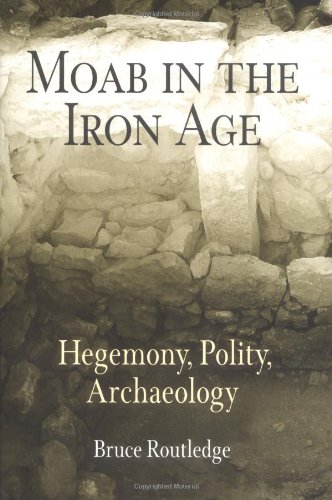

Most ebook files are in PDF format, so you can easily read them using various software such as Foxit Reader or directly on the Google Chrome browser.
Some ebook files are released by publishers in other formats such as .awz, .mobi, .epub, .fb2, etc. You may need to install specific software to read these formats on mobile/PC, such as Calibre.
Please read the tutorial at this link: https://ebookbell.com/faq
We offer FREE conversion to the popular formats you request; however, this may take some time. Therefore, right after payment, please email us, and we will try to provide the service as quickly as possible.
For some exceptional file formats or broken links (if any), please refrain from opening any disputes. Instead, email us first, and we will try to assist within a maximum of 6 hours.
EbookBell Team

4.4
12 reviewsMoab was an ancient kingdom located in the highlands east of the Dead Sea, in what is now Jordan. Known primarily from references in the Hebrew Bible, Moab has long occupied a marginal position, one defined by the complex interrelationship of history, theology, and politics that underlies biblical archaeology. Moab in the Iron Age: Hegemony, Polity, Archaeology inverts this position, using Moab as the centerpiece of an extended reflection on the nature and meaning of state formation.
Focusing on the state as an effect rather than a cause, Bruce Routledge examines the constitution of the kingdom over a period of some seven hundred years. In particular, he develops Antonio Gramsci's concept of hegemony by examining the ways intellectual products, such as inscriptions, public buildings, and administrative practices, transformed local cultural resources in order to construct political dominance as a moral order. Through a careful analysis that combines archaeology and textual study, Routledge demonstrates how long-established principles underlying local identities were transformed when appropriated for particular state building projects. From this, he offers insights into the realization and historical reproduction of political power in everyday life.
Rich in previously unpublished material, Moab in the Iron Age reinvigorates discussions of politics and culture in early complex societies, and presents a novel approach to the study of state formation.